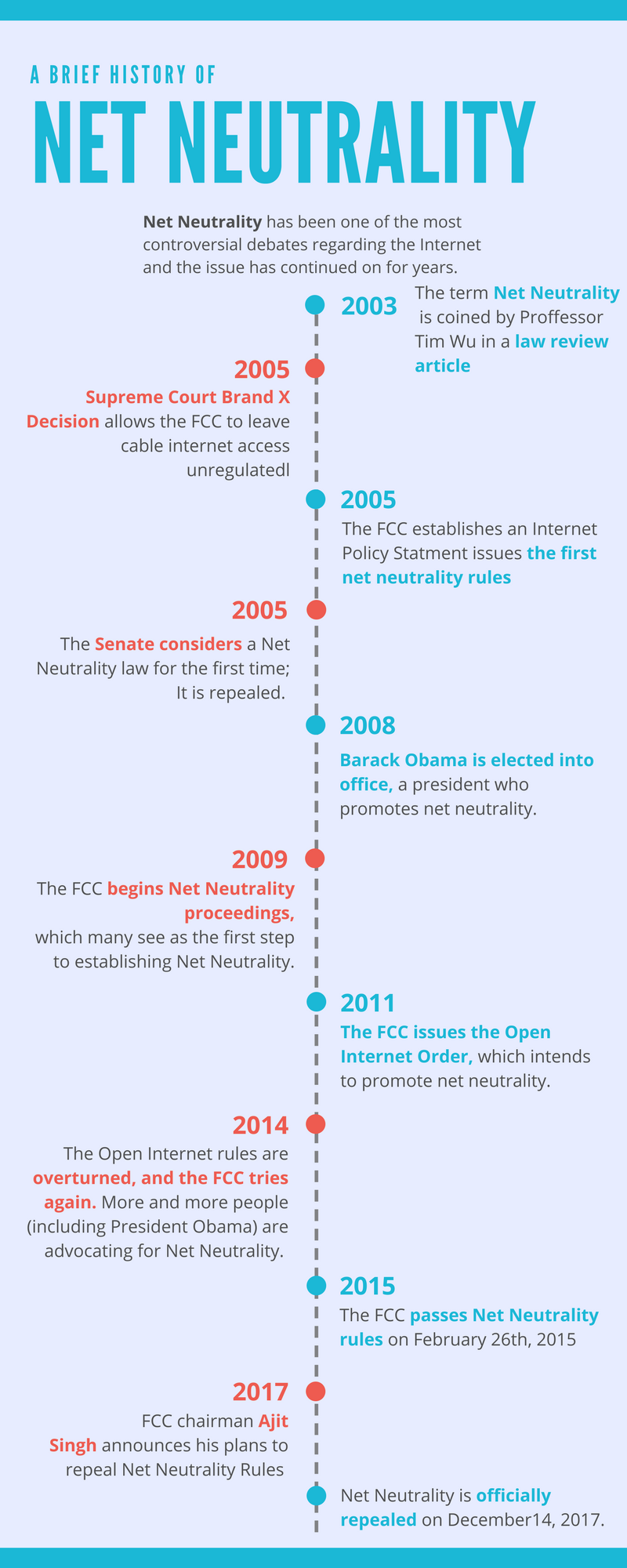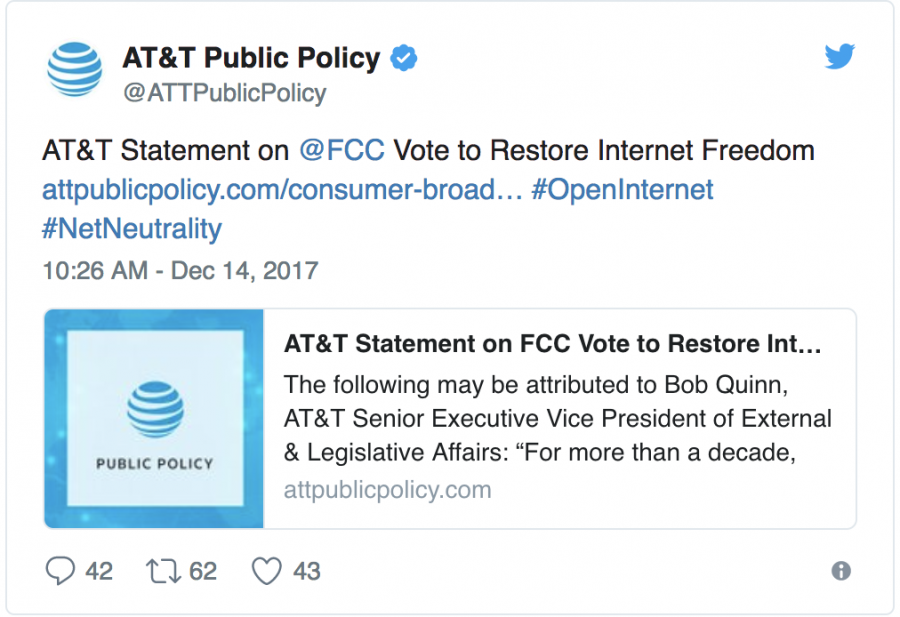hen the Federal Communications Commission (FCC) voted to repeal Net Neutrality on Dec. 14, there was an outpouring of anger, frustration and confusion on the internet. The vote was close, with three votes for the appeal and two against. This overturned the regulations that were set in place two years ago under the Obama administration that prevented internet providers from intentionally blocking or slowing down specific content online.
Over the last month, a bill in the Senate to reverse the FCC’s decision has been gaining support. As of Jan. 17, Democrats now have 50 votes out of 100, with one more to win the majority. Although there has been growing public support of net neutrality, the bill would also require a majority in the House, and Trump’s vocal support of the repeal could lead to a veto of the bill.
Sophomore Aditi Kotha is frustrated by the repeal and believes that she is going to be affected by different regulations on websites she regularly visits.
“I do think the government should be responsible for some regulation because if they’re not going to do it then who is going [to.],” Kotha said. “One company can’t control all the other companies because they don’t have that much power.”

On the other hand, senior Gautam Mundewadi believes that though the government should have control over private Internet service providers (ISPs), the concentration of power within the FCC is problematic.
“I find very interesting that we have a board of FCC directors that can make a decisions for us as a collective,” Mundewadi said. “Both parties, Republicans and Democrats, agree that Net Neutrality is a good thing and keeping it around helps promote economic growth as well as saving the internet.”
Further, Mundewadi says that part of the fear of the repeal of Net Neutrality is the uncertainty of its effects. Some ISPs, like AT&T have released statements about how their policies will remain the same, regardless of the repeal, stating that “the internet will continue to work tomorrow as it always has.” Verizon has also stated that they continue to support an open internet.
AT&T Statement on @FCC Vote to Restore Internet Freedom https://t.co/OY7rOKdxz8 #OpenInternet #NetNeutrality
— AT&T Public Policy (@ATTPublicPolicy) December 14, 2017
Their exact effects of the repeal aren’t exactly clear yet, but definite changes won’t occur until after a few months. Regardless, many, such as freshmen Leena Tantawy, believe that people should join the protest to protect Net Neutrality.
“People should try to stand up because it affects our lives a lot, especially since technology is so prevalent, and can change things for people of all ages,” Tantawy said. “They could stand up by protesting.”
Moreover, Mundewadi stresses the importance of government regulation in the overarching debate on how much control the government should have.
“These regulations prevent unfairness on the Internet, which is not necessary regulation,” Mundewadi said. “It’s regulation for fairness […] and they are intervening to make sure it’s a fair game for everyone.”










